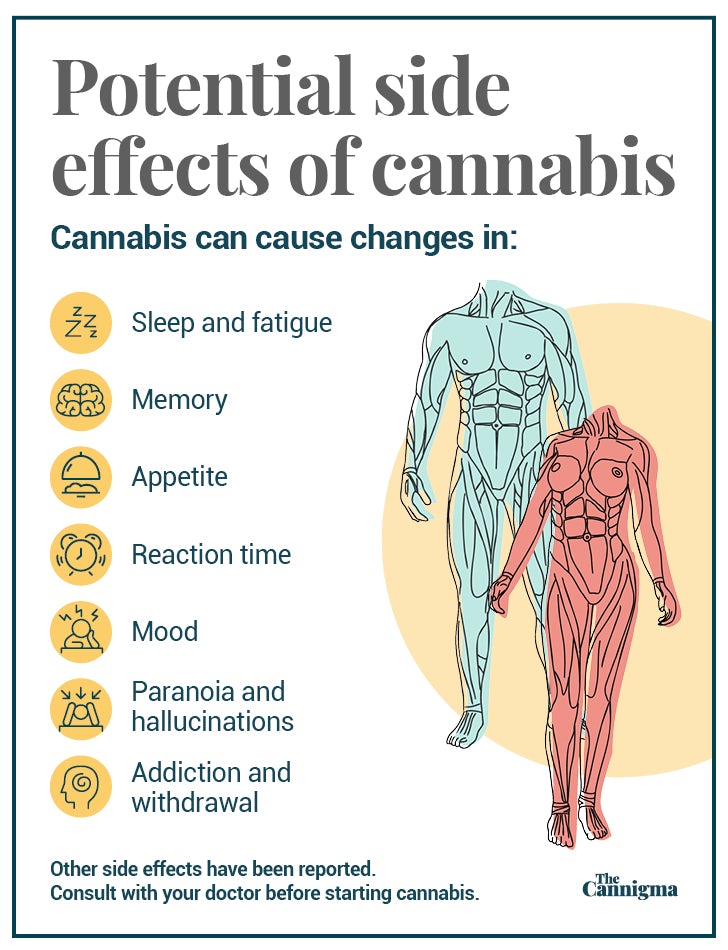Overview
Chronic Fatigue Syndrome, (CFS), also known as myalgic encephalomyelitis (ME), is a poorly understood condition that can be brought on in several ways. Many patients, frustrated with the lack of conventional (or successful) therapeutic options, turn to medical cannabis and other experimental approaches.
There are no clinical or preclinical research studies exploring cannabis for the treatment of CFS/ME. There are also no clinical studies pending on this subject, according to the US National Library of Medicine. This may be secondary to the legal status of cannabis in the USA and internationally and challenges associated with conducting a study as a result.
Many patients with CFS/ME try many different kinds of treatments, with little result. It’s from this frustration that some find their way to medical cannabis. It does seem as if cannabis holds some hope for patients with CFS, but there is a long way to go before clinical work can begin.
The Endocannabinoid System
The endocannabinoid system (ECS) is a network of receptors and naturally produced chemical transitions within our bodies. It is responsible for managing stress response, from both internal and external sources.
While the ECS is a relatively new discovery in medicine, scientists believe it is responsible for regulating many crucial physiological processes, including stress, appetite, pain, inflammation, memory, and mood. The primary goal of a healthy and fully functioning endocannabinoid system is to keep the mind and body in a state of constant balance, called homeostasis.
The relationship between the endocannabinoid system and CFS/ME is not clear. Experts are still debating what causes CFS/ME, and what biological pathways it follows. With the underlying mechanism of the condition up in the air, it’s hard to draw many conclusions.
What we currently know about the CFS/ME and endocannabinoids comes down to the many theories behind the disease. Immune system defects top the list, as do abnormalities in the functioning of the central nervous system.
Other theories revolve around dysfunction in stress response and an imbalance in the gut flora. Many of these scientific speculations revolve around physiological processes managed at least partly by the endocannabinoids system, including the immune system, stress response, and the central venous system. It’s no wonder the endocannabinoid system is a popular target for the treatment of CFS/ME.
The sheer number and variety of theories for CFS/ME imply that nobody is certain about a root cause. Right now, all we can do is make guesses based on the available evidence.
CFS & Cannabis
Without any available research on cannabis for the treatment of CFS/ME, the best information comes from cannabis’s many applications for the related symptoms of the condition. This means looking at how cannabis may benefit related mood and autoimmune disorders, and for the treatment of pain. Each is an area already targeted by conventional approaches in the battle against CFS/ME, so it’s worth exploring how medical marijuana may be useful in each of these areas as well.
Depression is commonly associated with CFS/ME. The current opinion on the benefits and risks of cannabis for helping this mood disorder are mixed and poorly understood. Patients’ surveys consistently report depression as a primary reason for medical cannabis use, yet there is also evidence that heavy use of cannabis in adolescence may increase the risk of depression later in life.
As one of the three possible systems affected by CFS/ME, the immune system is an important therapeutic target. An autoimmune disorder, which occurs when an overactive immune system damages the body instead of protecting it, is a broad term that covers dozens of different ailments, including rheumatoid arthritis, inflammatory bowel disease (IBS), and multiple sclerosis (MS). Cannabis is a known immune‐modulating agent. It does so through several mechanisms, including reducing pro‐inflammatory cytokine expression and increasing anti‐inflammatory cytokines. Several clinical trials have found cannabis effective for treating specific autoimmune disorders, including those mentioned above.
CFS/ME is often associated with varying degrees of chronic pain, the condition for which medical marijuana use is the most highly established. According to “The Health Effects of Cannabis and Cannabinoids: The Current State of Evidence and Recommendations for Research,” a 2017 report by the National Academies of Sciences, Engineering, and Medicine, “In adults with chronic pain, patients who were treated with cannabis or cannabinoids are more likely to experience a clinically significant reduction in pain symptoms.”
Given that cannabis shows potential for many of the associated conditions of CFS/ME, it seems likely there may be some therapeutic value for patients with a CFS/ME diagnosis. Still, there is so much research still needed into CFS/ME and cannabis separately, as well as together.
Any patient wishing to try cannabis for the treatment of CFS/ME should first speak with a knowledgeable physician. Cannabinoids, and especially CBD, are thought to follow the same pathways as many conventional hepatic drugs (meaning drugs affecting the liver), so there may be a risk of possible interaction with other prescription drugs that are broken down by the liver. Working cannabis into a integrative approach to treatment for CFS/ME requires much skill and care.
Potential side effects of cannabis use

Sign up for bi-weekly updates, packed full of cannabis education, recipes, and tips. Your inbox will love it.

 Shop
Shop Support
Support